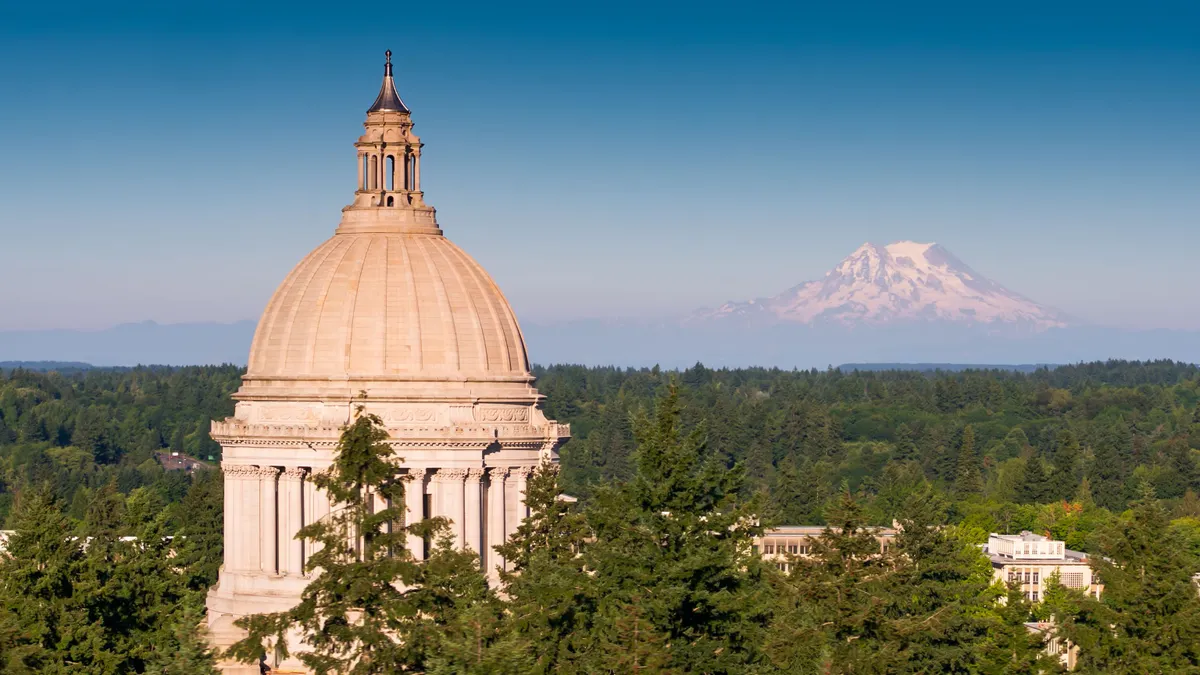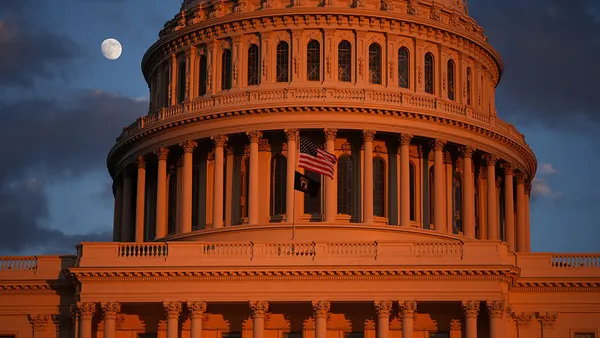Washington Gov. Bob Ferguson signed a bill on May 7 restricting rent increases in the state, joining California and Oregon as the third state, plus the District of Columbia, to institute rent control.
HB 1217, in its final form, restricts rent increases for existing tenants in Washington state to 7% per year plus inflation or 10%, whichever is lower. Rents for new tenants may be adjusted to any amount, according to a news release from the governor’s office. Rent increases for manufactured homes have been further limited to 5% per year.
“At a time of economic uncertainty, this common sense guardrail will protect working families and seniors from excessive rent hikes,” said State Senator Emily Alvarado, a Democrat representing West Seattle, who originally introduced the bill as a member of the House, in the release.
The law exempts new construction for 12 years, as well as affordable housing managed by nonprofit organizations and public housing authorities, according to a news release from Alvarado. The caps are designed to sunset after 15 years, except for the 5% cap on manufactured home rents, which is permanent. Landlords must provide 90 days’ minimum written notice of a rent increase.
Introduced in January, the bill passed the House on March 10. In the Senate, the bill was amended to raise the rent cap to 10% plus inflation and to exempt single-family rental homes. These amendments were removed in a conference committee on April 27, and the final passage vote in the House was 54 to 44 with five Democrats joining the Republican opposition, according to AP.
HB 1217 was part of a package of housing-focused bills signed by Ferguson in the same session. The others include:
- HB 1516, which creates additional insurance options for condominiums.
- HB 1757, which requires cities to create rules for multifamily conversions.
- SB 5184, which limits the number of parking spaces cities and counties can require for housing.
- SB 5313, which expands the items that are prohibited in residential rental agreements.
- SB 5529, which expands affordable housing tax incentives.
- SB 5611, which reduces housing permit timelines.
“Washington needs more affordable housing — a lot more,” Ferguson, a Democrat, said in his release. “We must make it easier, faster and less expensive to build housing of all kinds. These bills will address this pressing need.”
Expanding control
Washington’s rent control legislation is the first to pass at the state level in six years, following California’s and Oregon’s rent control laws in 2019.
Major municipalities with rent control include New York City, Los Angeles, San Francisco and St. Paul, Minnesota. St. Paul recently amended its existing rent control ordinance, creating a permanent exemption for any units that received a certificate of occupancy after Dec. 31, 2004, according to local news outlet KSTP.
Multifamily groups, including the National Apartment Association and National Multifamily Housing Coalition, have long opposed rent control in any capacity, saying that the laws exacerbate housing shortages and lead to the deterioration of existing buildings.
The Renton, Washington-based Washington Multi-Family Housing Association said that the law’s signing was deeply disappointing and sends the wrong message to the state’s housing providers.
“This bill adds new regulatory uncertainty at a time when the industry is already grappling with rising costs, labor shortages and shifting economic conditions,” the organization said in a statement shared with Multifamily Dive. “Our members want to be part of the solution to Washington’s housing crisis. But laws like HB 1217 make it harder to continue operating here, and harder to attract capital.”
Jay Parsons, independent consultant and former chief economist at Richardson, Texas-based RealPage, noted that while most renewal rent increases are already in the 7% to 10% range, Washington’s rent control law sets a precedent for future restrictions.
“We’ve seen this elsewhere in places like New York, [where] they’ve expanded or revised the rent control rules…four different times,” Parsons told Multifamily Dive before the law was signed. “So I think that the precedent is going to likely lead some developers and investors to maybe not consider the state of Washington. Not everybody’s going to do that, but I think there’ll be others who’ll say, ‘We don’t want to mess with it.’ It definitely adds a lot of risks to future investments.”











